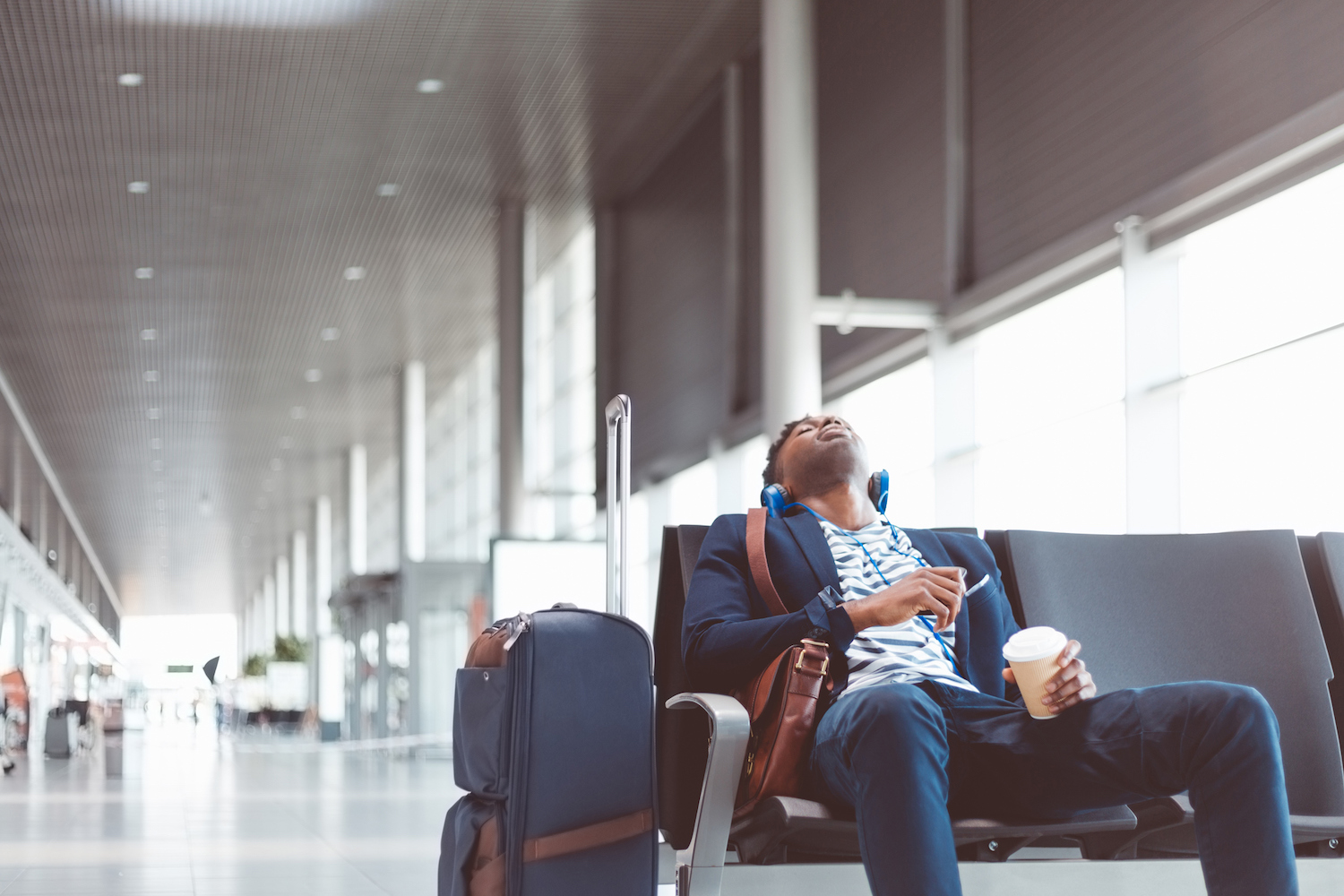
For backpackers and businessmen alike, physical and mental fatigue is not at the top of the agenda during the first few days of a trip abroad.
Jet lag is the result of rapid travel across time zones where the body’s circadian system cannot adjust to the new time zone quick enough. The common sleep disorder can leave travellers feeling tired and nauseous, with many experiencing headaches, lack of concentration and stomach troubles.
So how can you slay the silent assassin? Here we explain what exactly jet lag is and how you can beat it ASAP.
First of all… what’s a circadian rhythm?
Otherwise known as the body clock, the circadian rhythm is an internal system that runs on a 24 hours schedule, signalling to the brain when it should feel tired or awake.
Long distance travel disrupts the rhythm with your physical body being in a new time zone and your circadian rhythm being left behind on your usual schedule.
And what about melatonin?
Produced in the pineal gland, melatonin is the hormone responsible for regulating your sleep.
According to National Sleep Foundation, as you start to fall asleep, melatonin levels begin to rise rapidly, making you drowsy and less alert. Once asleep, melatonin levels stay elevated for about 12 hours, lowering as daylight breaks. During the day levels of melatonin are barely detectable.
Here’s how to overcome jet lag
1. Get your sleep in-check
When it comes down to it, jet lag is all about adjusting to a new time zone, so the quicker you can do that the more enjoyable travel becomes.
Plan ahead and start getting yourself onto local time before you arrive by setting your watch to local time zone while on the plane. This’ll have you staying active for longer during the day, keeping your melatonin levels down. As hard as it may be, resisting the urge for a mid-afternoon nap will also get you into a routine sleep schedule on local time.
2. Exercise
If you engage in regular exercise at home, be sure to continue it while you’re away. Exercise keeps the body and mind active making adjusting to local time quicker, pushing through the jet lag. Arnold Schwarzenegger even recommending the tip in a recent Instagram post, writing: “Never take a nap when you land after a long flight. Go straight to the gym for a pump.”
3. Keep caffeine to a minimum
While coffee might usually be your first port of call every morning, it’s best to avoid large amounts of caffeine after a flight. Caffeine produces a short-term buzz – usually kicking in after 20 minutes and lasting two to four hours. While this may increase alertness initially, the caffeine crash can leave you feeling more tired and prolong your jet lag. Additionally, the Sleep Health Foundation recommends not having a tea or coffee for at least two hours before getting into bed.
4. Avoid alcohol
Give late night shenanigans a miss at the start of your trip – research suggests that alcohol consumption will ultimately disrupt your sleeping pattern, making it more difficult to avoid and overcome jet lag.
5. Keep hydrated
Caught up in the excitement of jet setting, your recommended water consumption probably isn’t top of mind. However, staying hydrated is vital when looking to beat jet lag. In fact, research reveals that being dehydrated can make the physical symptoms of jet lag worse.
Stocking up on fluids before, during and after long-haul flights can help ease nausea, fatigue and headaches.
6. Reduce exposure to white and blue light before sleep
New country, new Tinder opportunities, right? But a late-night swipe won’t do you any favours while trying to adjust in a new time zone. The backlight display on smartphones and laptops can suppress the creation of melatonin, the hormones that influences your sleeping patterns. Fortunately, most devices now carry a “night-shift” mode like the one found of IOS devices, so if you find yourself having to work late, switching over is a safe bet.
Bon voyage.














